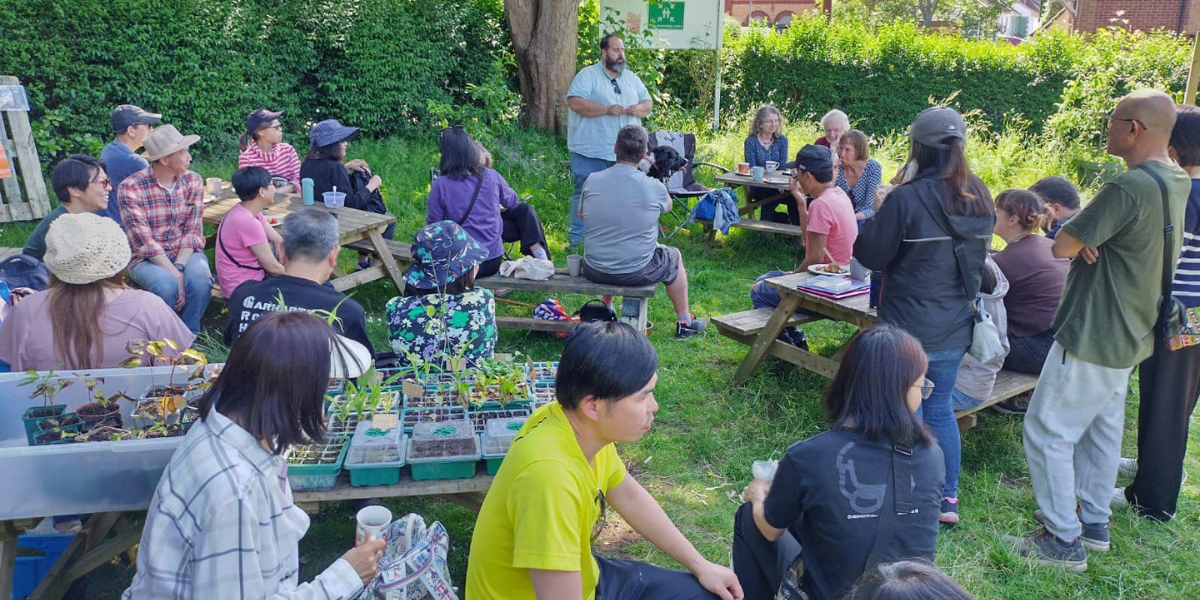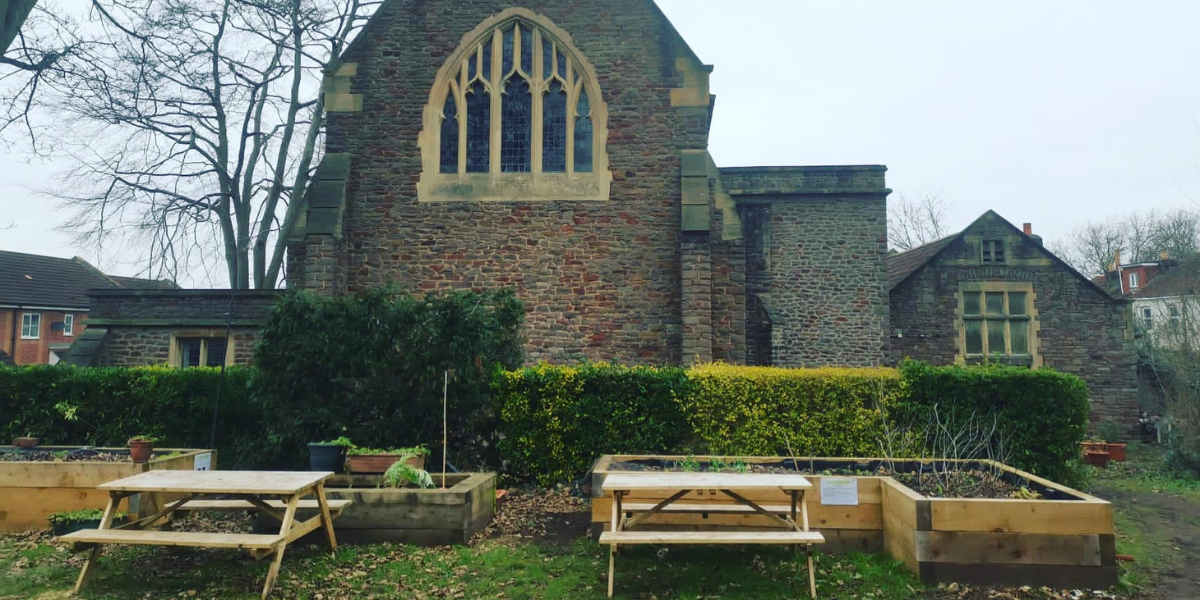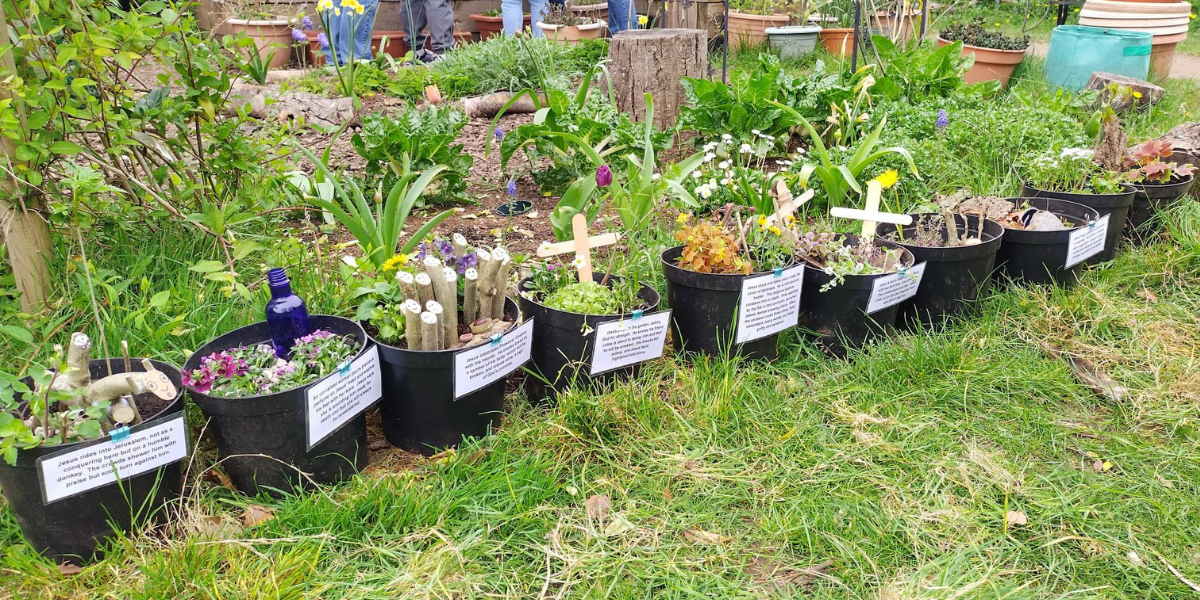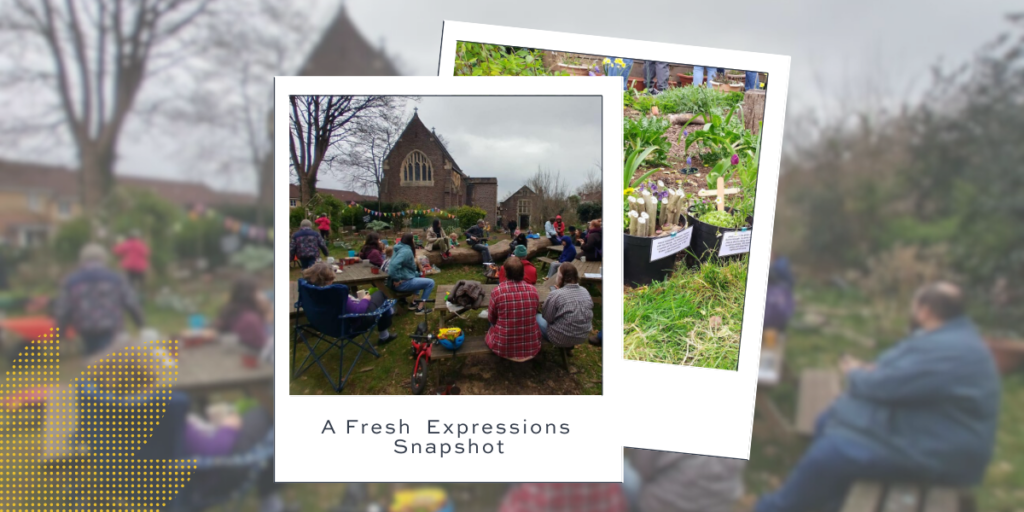“This is church, but not as I’ve ever known it. It’s open, inclusive, and grounded—literally.” – A participant at Hazelnut Community Bristol
In the heart of East Bristol, a quiet revolution is taking root—quite literally. Hazelnut Community Bristol is reimagining what church can look like by transforming urban land into sacred space, growing not just food but deep relationships, spiritual renewal, and ecological hope. As the first chapter of the wider Hazelnut Community Network, this Fresh Expression of church (from our friends at Fresh Expressions UK) invites neighbors of all backgrounds—especially those disillusioned with traditional church or passionate about the planet—into rhythms of community, creation care, and shared discipleship.
At Hazelnut, church doesn’t happen in pews. It unfolds in gardens and shared meals, in digging, dreaming, and discerning together. As one participant shared, “It’s more than planting vegetables. It’s a spiritual practice that’s changing how I see the world—and how I see God.” That spirit of transformation is woven into every inch of this community’s mission. It’s a vivid embodiment of Genesis 2:15, which reminds us that God placed humanity in the garden “to work it and take care of it”—a calling Hazelnut embraces with passion and purpose.

Responding to Real Needs with Creative Vision
Bristol is a vibrant, diverse city—but like many urban areas, it’s also marked by rising inequality, environmental anxiety, and spiritual disconnection. In a region where over 44% of the population identifies as nonreligious, and where traditional Sunday worship feels increasingly distant, Hazelnut offers something new. It’s a space where faith is expressed not just through words but through composting, planting, and caring for creation.
“We knew people weren’t coming to Sunday services anymore,” one Hazelnut leader reflected. “But they were longing for meaning, for community, for something to belong to.”
The community began by listening—to God, to the neighborhood, and to the land. What grew from that listening was a place where anyone, regardless of background, could show up, get their hands in the soil, and experience something sacred. Their approach echoes Genesis 2:15: “The Lord God took the man and put him in the garden of Eden to work it and take care of it.” For Hazelnut, this care isn’t just ecological—it’s spiritual and relational, too.
Worship in the Garden: Faith Rooted in the Seasons
Hazelnut’s calendar is rich with events that intertwine the rhythms of the church year with the cycles of nature, creating worship experiences that are both deeply spiritual and tangibly grounded.
- Good Friday All Age Picnic: Participants are invited to bring lunch and engage in reflective activities like planting potatoes and creating Easter gardens, embodying the themes of death and resurrection in a hands-on way.
- Easter Around the Fire: An early morning gathering where the community shares the Easter story around a fire, followed by an Easter egg hunt, celebrating new life in both spirit and creation.
- Grow Together Thursdays: Weekly afternoon sessions open to all, focusing on building friendships, learning about gardening, creating peaceful spaces for prayer and mindfulness, and taking action on the climate emergency.
- Spring at Hazelnut Sundays: Sunday gatherings that combine gardening activities with spiritual discussions, such as sowing a rule of life or contemplating the symbolism of seeds and soil.
These events exemplify how Hazelnut seamlessly weaves together worship, community, and ecological stewardship, making faith accessible and relevant to contemporary seekers.

From Garden Beds to Gospel Roots
Hazelnut is built on the belief that spiritual formation can happen anywhere—especially in the ordinary and the earthy. On any given week, you’ll find people gathering to grow food, swap stories, share meals, and reflect on scripture. There are no pews, pulpits, or pretense—just community rooted in place and purpose.
“It’s more than planting vegetables,” a member shared. “It’s a spiritual practice that’s changing how I see the world—and how I see God.”
In that simple statement lies the heart of Hazelnut’s impact. By lowering the threshold of belonging, and raising the expectation of transformation, Hazelnut embodies the mission of Fresh Expressions: reaching those who would never come to a traditional church and helping them discover that church can happen anywhere.
A Movement You Can Join
Hazelnut Community Bristol shows us that starting a Fresh Expression doesn’t require a full-time staff or a massive budget. It requires a willingness to listen, to love well, and to plant seeds—literally and figuratively—in the soil of your own context.
You don’t have to be a professional gardener or a theological expert. You just need to be open to the Spirit’s leading and the needs of your community. As St. Francis of Assisi once said, “Preach the Gospel at all times. When necessary, use words.” At Hazelnut, the Gospel is preached through presence, plants, and the power of shared purpose.

Snapshot of a Fresh Expression of Church
What is the Fresh Expression called?
Hazelnut Community Bristol
Where is it?
Bristol, England
Who is it for?
Hazelnut Community Bristol is for people who feel disconnected from traditional church but long for community, purpose, and spiritual exploration. It especially welcomes those passionate about creation care, justice, and belonging. Whether you’re a seeker, activist, or neighbor, Hazelnut offers space to grow—both in soil and in spirit.
What do they do?
Hazelnut Community Bristol is a vibrant, faith-based initiative that transforms church land into eco-communities, fostering deeper worship, community engagement, and environmental stewardship. Through activities like community gardening, shared meals, and reflective gatherings, it offers a space where individuals can connect with creation, each other, and the divine. By integrating spiritual practices with ecological action, Hazelnut Community Bristol addresses the pressing need for sustainable living and spiritual connection in contemporary society.
Who is the Pioneer?
John White
Where can I learn more?

